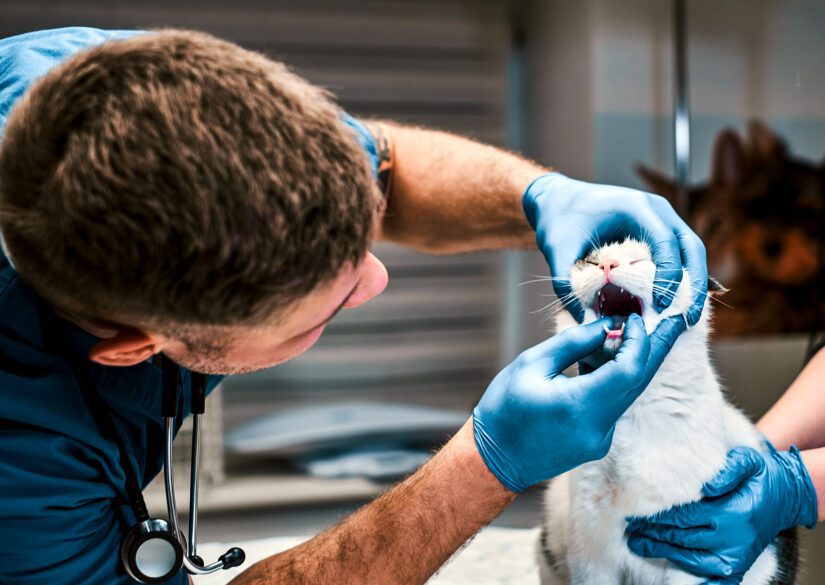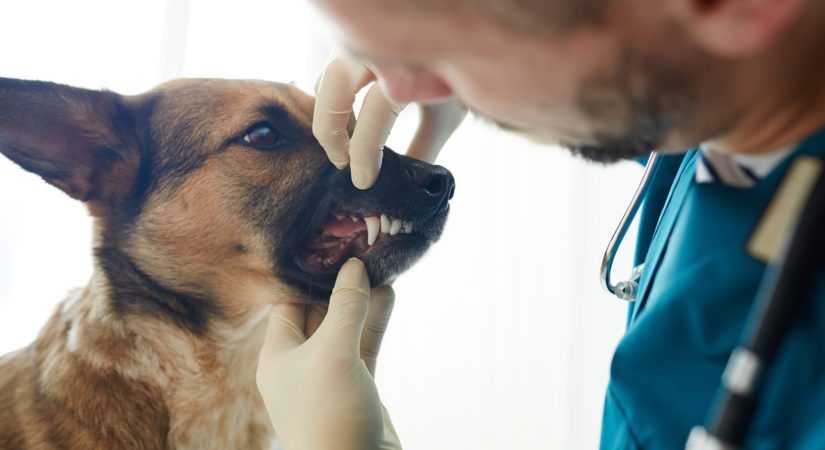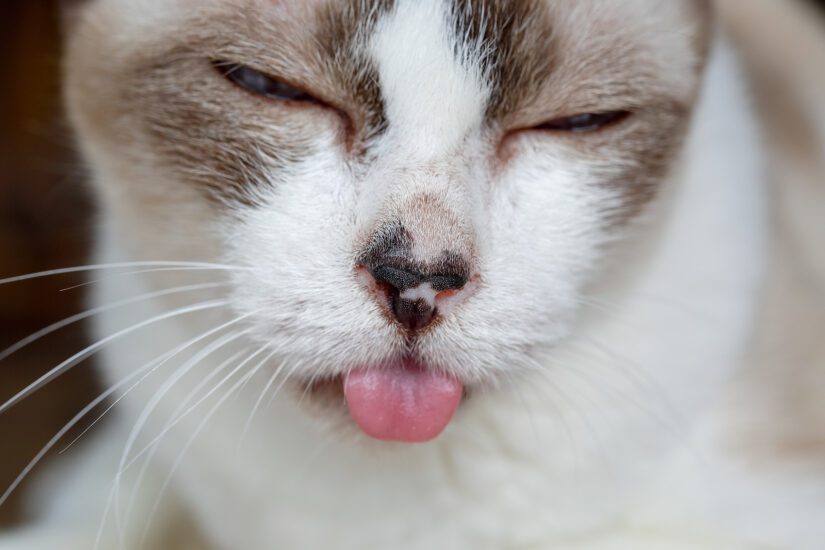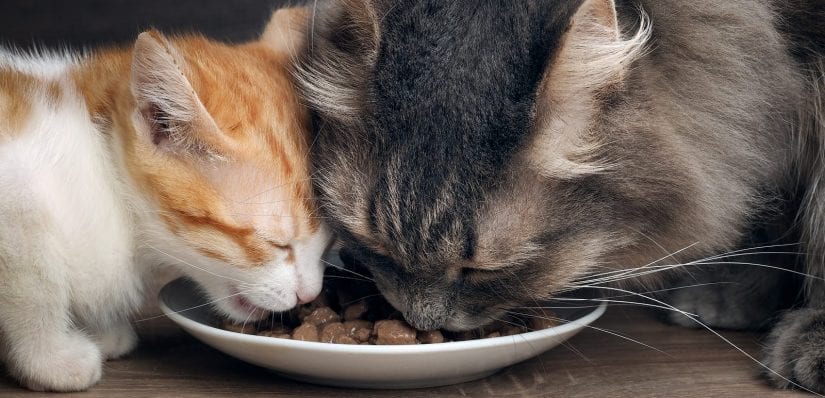Many pet parents are surprised to find out that they should be brushing their pet’s teeth daily. Often this information only comes to light after visiting the vet and learning that their pet needs to have several teeth extracted, costing thousands of dollars.
For pets to live long, healthy lives, regular dental home care and veterinary visits are a must. Below are tips on how to care for your pet’s teeth!

What is gum disease?
Gum disease is an infection between the tooth and the gum. Food particles and bacteria collect along the gum line and form soft, sticky deposits called plaque.
By two years of age, an estimated 80 per cent of dogs and 70 percent of cats have some form of gum disease. Over time, minerals in the saliva harden the plaque into yellow-brown tartar. Tartar has a rough surface which attracts further plaque accumulation.
Plaque causes the gums to swell, resulting in gingivitis. Gingivitis is the initial, reversible form of gum disease. Swollen gums begin to separate from the teeth, leaving gaps.

Bacteria can build up
Bacteria invade the pockets, leading to infection. Eventually, teeth may begin to loosen and fall out as the bones and ligaments that support the teeth are destroyed. This later stage of gum disease, called periodontitis, cannot be reversed, only managed.
Bacteria can also spread through the bloodstream to the kidneys, liver or heart, causing damage to those organs. Left untreated, gum disease may shorten a pet’s life span.

Is gum disease painful?
Yes! Pets with gum disease have sore mouths and may have difficulty eating.
As gum disease progresses, your pet may begin to chew on only one side of his mouth or drop food from his mouth as he eats. He may lose his appetite altogether. Pets may also be reluctant to groom, chew on toys or socialize.
However, in many cases, gum disease may be present without any obvious signs of pain – and still be a significant welfare concern. This is why routine health checks with a veterinarian are so important.

Does your pet have gum disease?
Bad breath is an indicator that your pet may have gum disease.
Other serious signs include red, swollen gums, yellowish or brownish tarter on the teeth, and blood left on chew toys.
Brush your pet’s teeth
Prevention is the key. Just as with people, regular brushing is important for pets. Ideally, brush your pet’s teeth every day or at least every other day. Less frequently than this is of virtually no value to preventing gum disease.
Your veterinarian will demonstrate the best brushing method. Cats can be a challenge, though some tolerate brushing. Also, small dogs and breeds with flatter faces are especially at risk for gum disease because their teeth are closer together.
Veterinary clinics and pet supply stores sell toothbrushes and toothpaste made especially for dogs and cats. Avoid human toothpaste, which may contain too much fluoride and irritate your pet’s gastrointestinal system.
Chew on this!
Nylon or rubber chew toys can help to scrape away plaque and tarter. Look for ones recommended by veterinarians. Avoid hard, plastic chew toys, which can fracture teeth.
If you cannot make an indentation in it with your fingernail, or it would hurt to hit yourself in the knee with it, the toy is too hard.
Supervise chewing time so your pet does not accidentally swallow any pieces of the toy. Throw the toy away before it gets too worn down.

Regular check-ups
Take your dog or cat to the veterinarian at least once a year to have their mouths checked as part of an overall health exam. Your veterinarian may recommend a professional cleaning.
This procedure, called dental prophylaxis, requires animals to be under general anaesthetic while their teeth are cleaned. Anaesthetic-free dental cleaning services are not recommended as they are not done by veterinary professionals, which means that important signs of dental disease can be missed.
Diet matters
Using a special dental diet can also help prevent gum disease. Dental diets help slow down the formation of plaque and tartar.
As your pet chews, the kibble helps scrape teeth clean. You can also give pets veterinarian-recommended treats that are specially formulated to keep teeth healthy. Dental diets and treats can be found at veterinary clinics.

